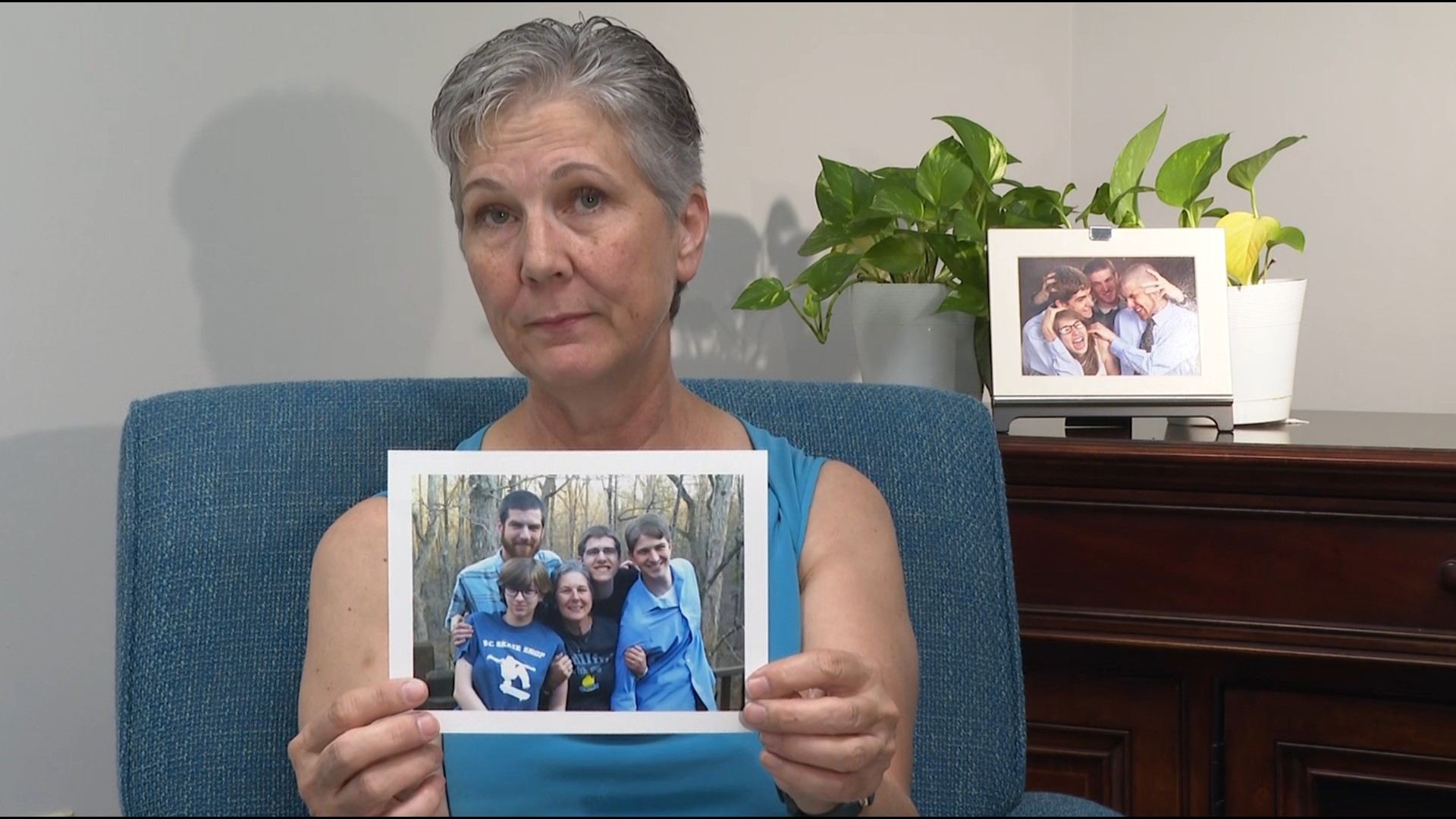ATLANTA — A growing number of kids in Georgia are dying by suicide, according to data released by the Georgia Bureau of Investigation.
According to preliminary data from the Georgia Department of Public Health, 118 children and teens, between the ages of 10 and 19, took their own lives in 2021.
It’s now the second leading cause of death among kids ages 10 to 14.
“This is my beautiful son Karl," said Sherry Unwala, showing off a photo of the son she lost too soon.
"I know now the depression started in 2007," she said. “He didn’t tell us.”
Unwala is a part of a group she never thought she'd be helping lead; a grief group for people who have lost loved ones to suicide.
Many, like Unwala, are parents who have lost their children. Her son Karl took his own life in May 2006.
"He loved life, and just the fact that he lost the will to live is very difficult to comprehend," she said. “It's not his fault. He didn't do it because he was mean or selfish. He was a good kid.”
And Unwala is not alone in her grief.
Michelle Cleveland lives it every day, too.
"This is March 6, 2016," said Cleveland, pulling out a family photo. "This is the last picture of all of us together. You can see how happy everybody was, everybody, smiling. And then the next day. Thomas, my youngest son, took his life.”
Thomas was just 18 when he died.
"He had been bullied forever because he was such a sweet kid," Cleveland said.
Less than a month later, struck with grief, her 27-year-old son Nicholas took his life, too.
“The boys chose to put a period on the sentence," Cleveland said. "They didn't continue.”
The American Academy of Child and Adolescent Psychiatry recommends communities have 47 youth psychiatrists per 100 thousand children.
Georgia only has 8.
One hundred and twenty-three counties in the state don’t have a single one.
“From 2020 to 2021, we saw about a 60% increase in youth suicides," said Dr. David Purselle, one of 55 psychiatrists in Fulton County who treats children. "Georgia is one of five states where the suicide rate was increasing.”
He noted that the demand has increased to a level that mental health providers across the state are not able to meet.
“I probably see 400 or 500 patients a month," he said. "I get several calls a day for folks looking to get treatment. Unfortunately, I've had to close to new patients."
The need is indeed growing. The number of high school students who seriously considered suicide rose by 35% between 2009 and 2019, according to the U.S. Surgeon General.
"I have definitely seen an increase in depression and anxiety over the last couple of years,” Dr. Purselle said.
Additional disturbing inside into the issue comes from Atlanta-based company Bark, which runs parental control software, installed on nearly six million kids' devices nationwide.
A Bark spokesperson said so far in 2022, they're flagging an average of 10,000 alerts a week specifically related to suicide.
Between the lack of mental health providers in Georgia, and often prohibitively expensive costs even for those who can get in, Dr. Purselle said it's critical for parents to pay close attention to changes in their children.
“Are they becoming more isolated, more withdrawn?" he said. "Are they having behavioral changes? Do they have less interest in school? Are they not eating as much? Are they not sleeping as much, or are they sleeping more than normal? These things can all raise red flags.”
In the meantime, Unwala and Cleveland's suicide loss group, Cumming SOS, is – tragically – growing.
“More," Cleveland said. "More people.”
But they’ll keep showing up, steadfast in the belief that their stories might resonate and give others hope.
“You can't go back and change, but maybe you can for somebody else," Unwala said. “I think Karl is proud of me.”
Cleveland said she encourages anyone struggling with suicidal thoughts to seek help.
“Continue your story, as hard as it is right now," she said. "Reach out to somebody. Anybody. Talk to somebody. And you'll make it.”
For a list of free resources for survivors of suicide loss, click here.
The NAMI (National Alliance on Mental Illness) Georgia Information HelpLine is an information and referral service that can be reached by calling 1 (800) 950-NAMI (6264), Monday through Friday, 10 a.m.- 6 p.m.
The National Suicide and Crisis Lifeline can be reached 24/7 by dialing 988.

